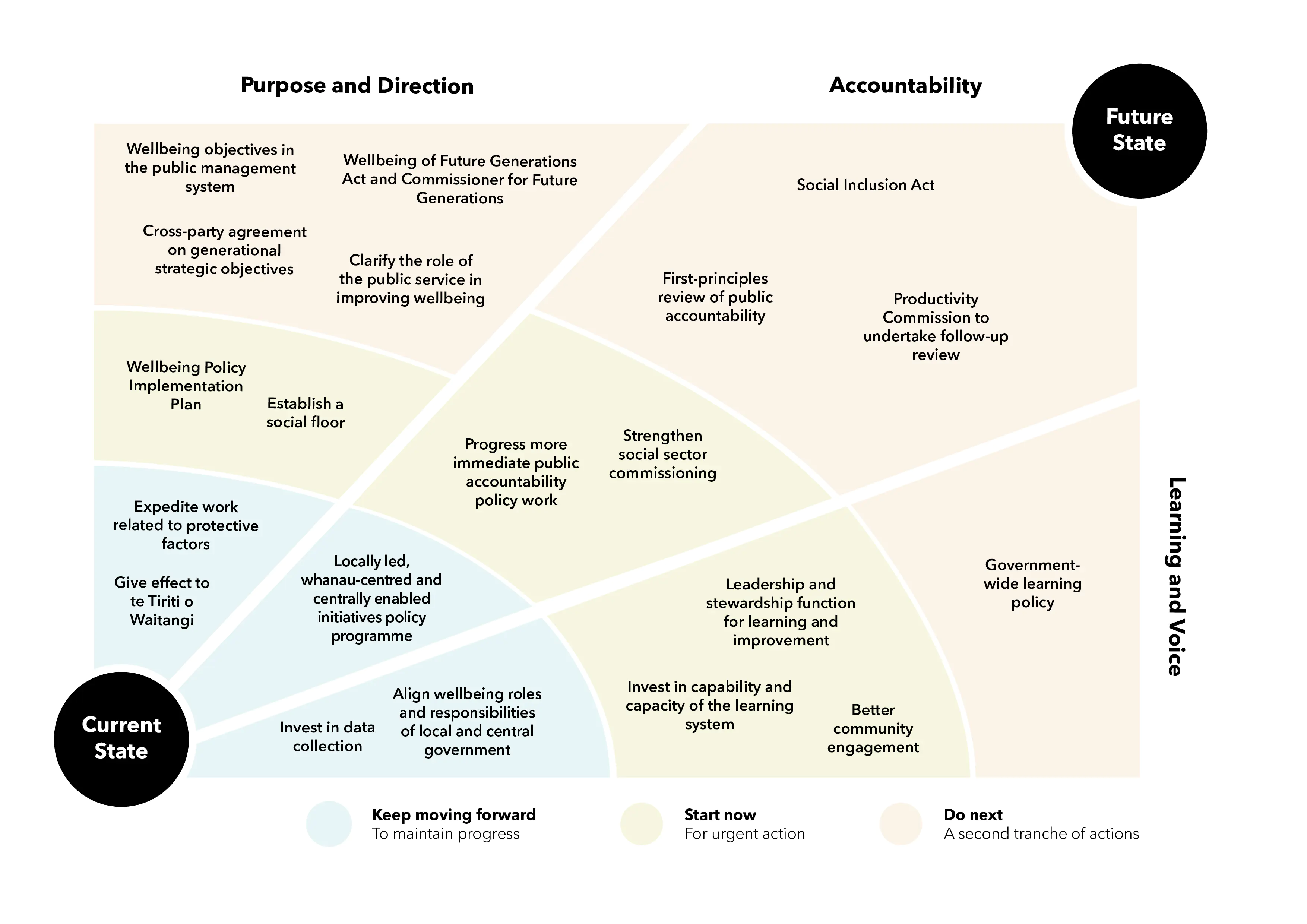
We undertook an inquiry into economic inclusion and social mobility, focusing on the drivers and underlying dynamics of persistent disadvantage. Our mauri ora approach is strengths-based and includes the four dimensions of human wellbeing from He Ara Waiora.
- Mana tuku iho – have a strong sense of identity and belonging.
- Mana tauutuutu – participate and connect within their communities, including fulfilling their rights and obligations.
- Mana āheinga – have the capability to decide on their aspirations and opportunities to realise them in the context of their own unique circumstances.
- Mana whanake – have the power to grow sustainable, intergenerational prosperity.
Our definition of disadvantage sets out three domains that align with the absence of mauri ora:
- being left out (excluded or lacking identity, belonging and connection);
- doing without (deprived or lacking the means to achieve their aspirations); and
- being income poor (income poverty or lacking prosperity).
Persistent disadvantage is, disadvantage that is ongoing for two or more years.
Our inquiry focused on the overall settings of the ‘public management system’ taking a whole system view, rather than assessing polices and services in one or two government agencies.
The inquiry heard from over 1,000 people on the terms of reference, received 69 written submissions on the interim report, and held over 140 hui / meetings, wānanga and talanoa sessions with individuals, communities, government, and non-government organisations throughout Aotearoa New Zealand. Thank you to everyone who contributed.
Read Overview - HTML / Overview - PDF

